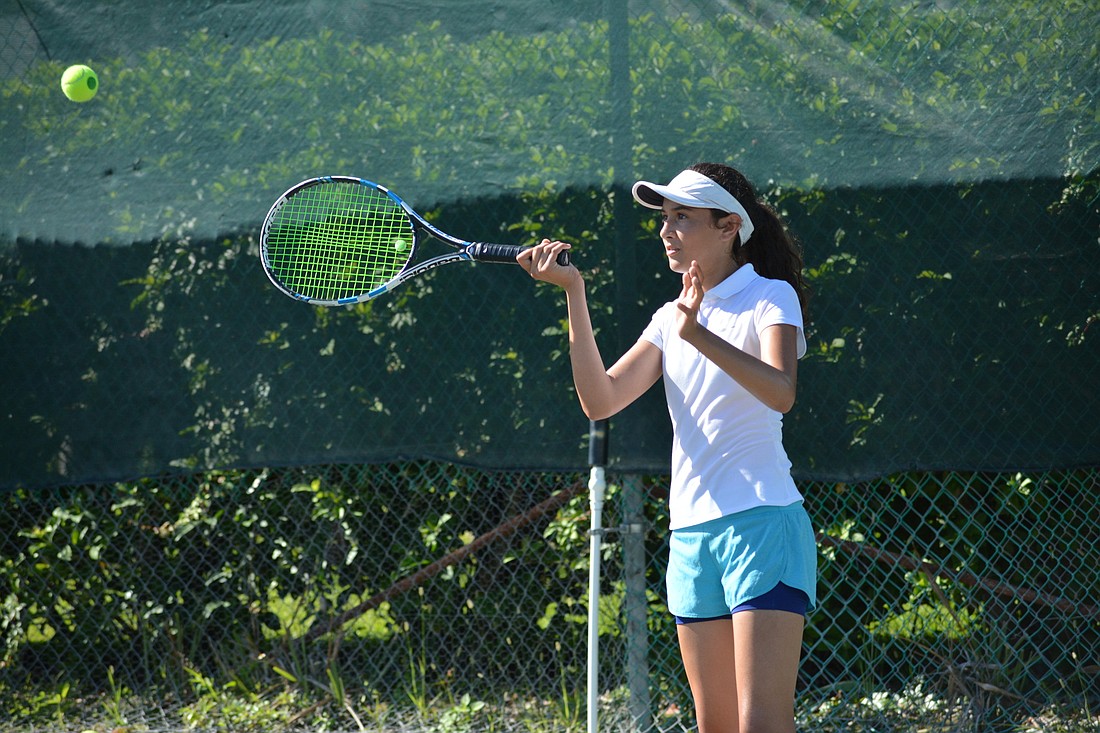- November 23, 2024
-
-
Loading

Loading

Celsius Tennis Academy has never done this before.
It’s one of the most successful tennis academies in the area, with recent graduates attending Florida, Florida State, Ohio State, Harvard and California universities, among other top programs.
Sure, the academy’s director, Cary Cohenour, has given discounts to promising players who could not otherwise afford the school’s programs. It had never given a spot away for free, though.
That changed soon after instructor Rene Muzquiz saw a video posted to Facebook.
The video depicted a girl, Katherine Frayre, who leaves her home in Tijuana, Mexico at 5 a.m. each Monday through Thursday and crosses the U.S. border. Her destination is Rolling Hills Tennis Academy in Chula Vista, Calif., where the 14-year-old goes to sharpen her skills. The journey takes about 3 1/2 hours each way.
Muzquiz watched the video and immediately commented on the post, saying he was willing to get her a full scholarship to Celsius, located at Sarasota’s Bath and Racquet Club, even offering to let Frayre stay at his home. After talking with Cohenour and Frayre’s parents, he helped all parties reach an agreement. Frayre would come to Celsius and receive training, free of charge.
His response to the video comes from his own experiences. Muzquiz, like Frayre, grew up in Tijuana. His family, like Frayre’s, was not overflowing with money. He had to split a weekly tennis lesson with his brother, and those lessons took place in San Diego, less than 20 minutes from Chula Vista. He understands what she goes through every day, and what she gives up to follow her dream.
“It’s sacrifice,” Muzquiz said. “To achieve your dreams, you need to sacrifice a lot, whether that’s money or family or something else.”
In Frayre’s case, it’s a bit of everything. The biggest thing she misses, though, is sleep.
“Waking up (early) every day,” she said. “That’s the worst part.”
Frayre wouldn’t be so determined if she wasn’t good. She is, though. She finished second in a 2015 Olympic selection tournament in Rosarito Beach, Mexico. Her dream is to play tennis professionally in the United States. Muzquiz thinks she’ll be a college team’s No. 1 player someday, with the potential for even greater things. He should know. Before becoming a coach, Muzquiz was a top-five ranked junior player in Mexico, and played professionally on the North American satellite circuit.
It’s her attitude that makes her great, Muzquiz said, calling her “a beautiful person” and what every tennis coach wants in a player. Frayre is always cheerful, always giving everything during her practice sessions.
That effort is obvious when watching her. During one particular drill, when doubles pairs were substituting on the fly after each point, similar to a game of knockout in basketball, all six participants were gassed — except Frayre. She was consistently the first one in position, and didn’t so much as break a sweat.
“She’s taking this opportunity to the max,” Muzquiz said.
He’s encouraging Frayre to speak English, she said, saying he would not approve of her using Google Translate during interviews. She’s a little shy, being in a new environment.
Muzquiz is so fond of Frayre, thinking of her as a mirror to his younger self, that he invited her to train at Celsius every summer. While Frayre is a special case, her story is a reminder of the things academies can do for less fortunate athletes, and is also one that Muzquiz hopes persuades others to follow their dreams.
“She inspired me,” he said. “I’m a single parent. Sometimes you need a spark in life to keep on going. I hope she inspires everybody.”